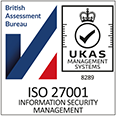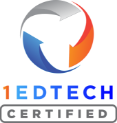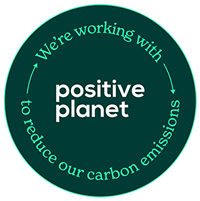Matt McGrath from Griffith University on ‘Student Perspectives on Employability’ in Business. This recording is from our 2022 Brisbane, Australia MiniBash community event. Videos are for educational personnel only and require a live educational email to watch. You can read the video transcript below.
Transcript:
Hi everyone. Lucky, lucky last of the practitioners’ stories. It’s a pleasure to be here today surrounded by so many talented people. Feel a bit overawed, but it’s been really great and interesting hearing you all and hearing all the different approaches and practices with PebblePad.
And as you’ve sort of heard a lot about the student outcomes and the user outcomes that’s sort of the whole thing for me. So for the better part of the past year, My name is Matt, by the way. I’ve been coordinating Business Plus, which unlike Gayle Sciences Plus has bit of different approach and a much bigger market in terms of co curricula. So it is an optional program that aims to support student employability and professional development activities.
We try and reach all business students, which is a very, very large cohort.
Right through from first year all the way up to post grad and some HDR students as well. We also got a lot get a lot of different students from other groups and schools getting interested in wanting to come and engage as well such is the demand and interest in these kind of activities.
So that’s sort of where we’re different trying to approach it a very different cohort. They all have different needs, desires, business school by nature. Has so many different disciplines, so it’s very difficult to reach it. So you’ve almost gotta have something for every everyone. The program is run by a coordinator.
For the most part, last you and myself in collaboration with a few really great partners.
Business partners career development coordinators academics, and support staff to create meaningful events and activities to allow students to connect and really engage and empower themselves to engage with their own development and that’s really where the the huge outcomes from comes for me and that really replicates the ways of working in the real world once they go to graduate as well.
Taking that independence and ownership of their own journeys. And at Griffith, we really have so many resources and support, maybe too many. For students to take advantage of and today I wanted to tell some of those stories.
Well Orie Orie lost you.
There there we go. So we’ll go to the next one. So for context, essentially business plus is an ecosystem of all these different parts of employability made up of the the different parts that we see is important to the student journey. Not all of them but some of them.
So we have a skills audit which helps students plan their career and get a lot of self reflection early on. And it’s embedded into foundation course curriculum as a bit of an early engagement piece. We’ve got a series of career skills and work readiness workshops that can be taken at any point throughout their student life cycle, industry mentoring program, work integrating learning, work experience, engaging with community internships and connecting with a ton of enrichment activities which we do in regards to the students working with different partners like networking, majors exploration, industry panels, student club events, And then we also give them the chance to to put this all together and build their own e portfolio and enjoy some of the pedal pad functionality to to put them back together and create their own unique story that they can use as a platform to sell themselves going forward.
And across all this year, Pebblepad is used mainly as a tool to reflect upon their experiences that they take from before or during the program. With some of that back end Atlas functionality used as well.
So business plus pulls in over fourteen hundred students each year who activate one of our workbooks and engage with the pebblepad workbook in some way, which is a reasonable reasonable chunk of our twelve thousand plus business students, which for an opt in program is like I said extremely challenging, especially when we’re trying to balance you know, their work priorities. We’re competing against all these other things that young people have in their life. But to start with we try and reach them through absolutely every conceivable communications method possible within the scope of the university including an integrated network of champions and central partners around the university we they typically engage in orientation week or in the early week one sign ups in Foundation Year through that embedded co curricular skills audit.
And then they can see our newsletter. We engaged through digital screens around campus.
Teams feed that all students automatically a part of we try and reach them in many ways because unfortunately that is one of the challenges that we we face.
And this graphic is just one generalised version of a typical student journey. However, the reality is that they engage with these different elements of employability in their own way, in their own time.
Depending on their own journey and their own experiences and where they’re at in their life whether they’re a first career or or changing career halfway through. And really the variability of this program allows students to expand their their own story and that uniqueness is something that I really enjoy seeing and it comes through in the final portfolios.
So here’s just one example of portfolio that we use that sort of sits out and allows students a fairly great way to use it in their own way and then reflect Now you understand a little bit about the program. I want to take you through a few of the stories.
Out outcomes that drive that narrative empowering students to engage with it own their own employability and that can have clear and direct and powerful results in my opinion.
So getting them to turn up and register is difficult but for those that do the ones that really engage and take ownership of that they regularly step out of their comfort zone and they direct gain direct access to industry and often get fantastic outcomes before they graduate, which is something I’ve seen this year which is really really powerful.
They also the ones that prioritized their own development gain a strong sense of self confidence and sense of self in terms of the early career direction and something that was touched on today, curiosity into where that could go as well, which is really interesting.
And those that forego the the extra money value, you know, the extra work or time on the couch or socializing can really see some tangible benefits.
And the payoffs are really great.
One thing which was also touched on today, a lot of things I’m sitting there listening at the back going, when I say that, I’m going to say that, is the aspirational element of the program and these events, employability can be powerful and really transformational.
And it’s so much more than just helping students get a job and develop skills which I think is a very base level assumption initially Certainly when I came into the employability space. But some of the feedback we hear is that students do understand the aspect of lifelong employability, which is something that’s so important.
I think Sally touched on it. It’s not about employment. It’s about employability. And that’s so important. A really great thing to remember.
Students see a much clearer connection between university and their career. They don’t see it as two separate phases of their lives.
And it is really a fluid fluid thing and that leads back into lifelong employability as well. But it’s not a surprise then that students mindset and transferable skills are stronger when they engage in these kind of activities, as well as their understanding through the the valuable self reflection in PebblePad.
And I would love to steal the the pebble pocket as well. I think that could be a really, really great thing for students to do. There’s actually quite a few tips that I’ll be passing along here today.
So a key theme for most of our recent feedback was this idea of the speed networking which we trialed definitely not original but for the first time we tried that today to bring together the holy trinity of stakeholders. Students industry and staff.
And really we just wanted to provide students meaningful opportunities to connect right. That the idea of networking has a bit of a dirty tinge to it, but essentially it’s just about creating connection.
And the students really really valued that and you could see it with every single conversation the the rise were lighting up they were learning they were growing and building their network essentially. You can see in some cases that the penny had dropped, something had clicked inside them over the course of just even a couple of hours as well, which is really great. And that’s I guess for my job essentially was just to facilitate that and let students take take that on themselves and you could see that so clearly.
So you could see the value from a skills perspective, but also in the networking, growing their networking.
One student story resonated with with me, Mitraige girl from Uganda. She come over here with a really good sense of self and an experience in consulting.
But from a very different way of life and she’d come over here and she had a lot of roadblocks in a way and was talking to me about saying, I’ve got all this experience and I’ve got intention to do this, but I’m really really blocked and I don’t know where I need to go. And towards the end of the the session, I connected her with a really experienced consulting gentleman who was very talkative and I just said, look, why don’t you go and have a chat to Ian And I just left let them go and then sort of as we were packing up, I noticed that she’d just come over to us and she had this big smile on her face. And I’m paraphrasing, but she was like, oh my god, Matt. It’s as if this way it’s been lifted. I just can’t can’t believe like all of those barriers are gone. I know exactly what I need to be and and do. I’m so glad that I came.
And just all that from fifteen minutes. It was literally fifteen minutes later. And just one connection completely changed her mindset. And that’s really the power of that transformational aspect, the power of these opportunities.
And I look forward to watching where that shouldn’t end up essentially because I think should be great. And that was really just one of the many many things that I’ve seen and I’m sure many of you have seen and see all the time with students and it’s really Yeah, really nice to see. It gives me the fuzzies, I think.
Now while the student outcomes are endless the growth I think in business passing a lot of these is the industry aspect which is something I saw at these kind of events and that’s where the growth is. The responses we gain from students was positive, but the industry really wanting to engage and turn up in drives and give their time to connect back. Many of them as alumni was really evident. In the mark of the good program and good events I think is not just the students saying this is really great, but the industry going, I think I got more out of that than the students And when is your next one?
Can I come back? And people are saying, I wanna come back. I wanna come back straight away and it’s like okay, slow down. We’ve only got so many events in the year.
So really great.
Now to finish off, Carol, you might need to help me make this work. I wanted you to hear from the students. So this group of students you’re about to hear from shared their own stories midway through this year. Some of their employability lessons and words of advice completely unscripted in their own words just about their own journeys and and it’s really great to see they can tell it in a far better way than I can.
So At one of my old jobs, my manager wants told me that I wasn’t cut out to be a journalist, and I remember thinking, I’m going to university and I’m trying to myself.
How can you say that to me? We scheduled the teams interview.
One of the behavioral questions was explaining your weakness in sort of a setting, so I sort of called myself lazy. And I was like, oh, shoot. Not so tight. I tried hard to get into marketing any couldn’t find it and then started waitressing.
It was not a good job, actually, initial job aren’t that much fun. But say, with business class, I’d know which sort of a job would suit me the best. So I’d do it the best. It.
And that would make my career a little bit more streamlined that I could envision where I’m going. When I first moved to Bruce when I actually worked for a company. I realised early on didn’t quite actually match my own values and what I wanted to or what I believed in. It wasn’t the workplace for me, and business plus really helped me to figure that out.
For me personally, I would get involved in business plus as soon as possible. I think business plus has taught me everything to do with employability. I think without business plus, I would still be in that high school of my set. Business plus has helped me, you know, get out there, get uncomfortable, build all these necessary skills, business plus just teaches you essential life skills.
Yeah. Thanks a lot. Yeah. Here you go.
Thank you.
Not sure how much time we have for questions, but I’m happy to chat after as well but thank you.







